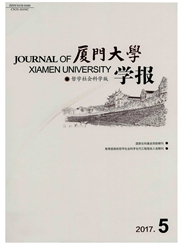

 中文摘要:
中文摘要:
通过对波动溢出假说、价格滞后发现假说和交易阻碍假说的实证分析,可以回答涨跌幅限制究竟是促进了市场的效率,还是降低了市场的效率这样一个问题。实证研究结论表明,涨跌幅限制对市场效率产生了负作用,降低了市场的信息效率。涨跌停限制加剧了股票市场的波动性,推迟了价格的发现,并阻碍了交易的进行。而且,由于我国没有卖空机制的存在,证券市场对涨停限制有过度的反应,在对市场效率的阻碍上,涨停限制比跌停限制产生更大的影响。
 英文摘要:
英文摘要:
Empirical studies of the volatility spillover hypothesis, the delayed price discovery hypothesis, and the trading interference hypothesis can answer this question: Does price limit increase or decrease stock market efficiency? Our empirical studies demonstrate that price limit has a negative effect on market efficiency and it decreases market information efficiency. Price limit also intensifies volatility in stock market, defers price discovery and interferes with trading. In addition, due to lack of short sale mechanism China's stock market is overactive to upward hmit, which decreases stock market efficiency more seriously than downward limit.
 同期刊论文项目
同期刊论文项目
 同项目期刊论文
同项目期刊论文
 期刊信息
期刊信息
